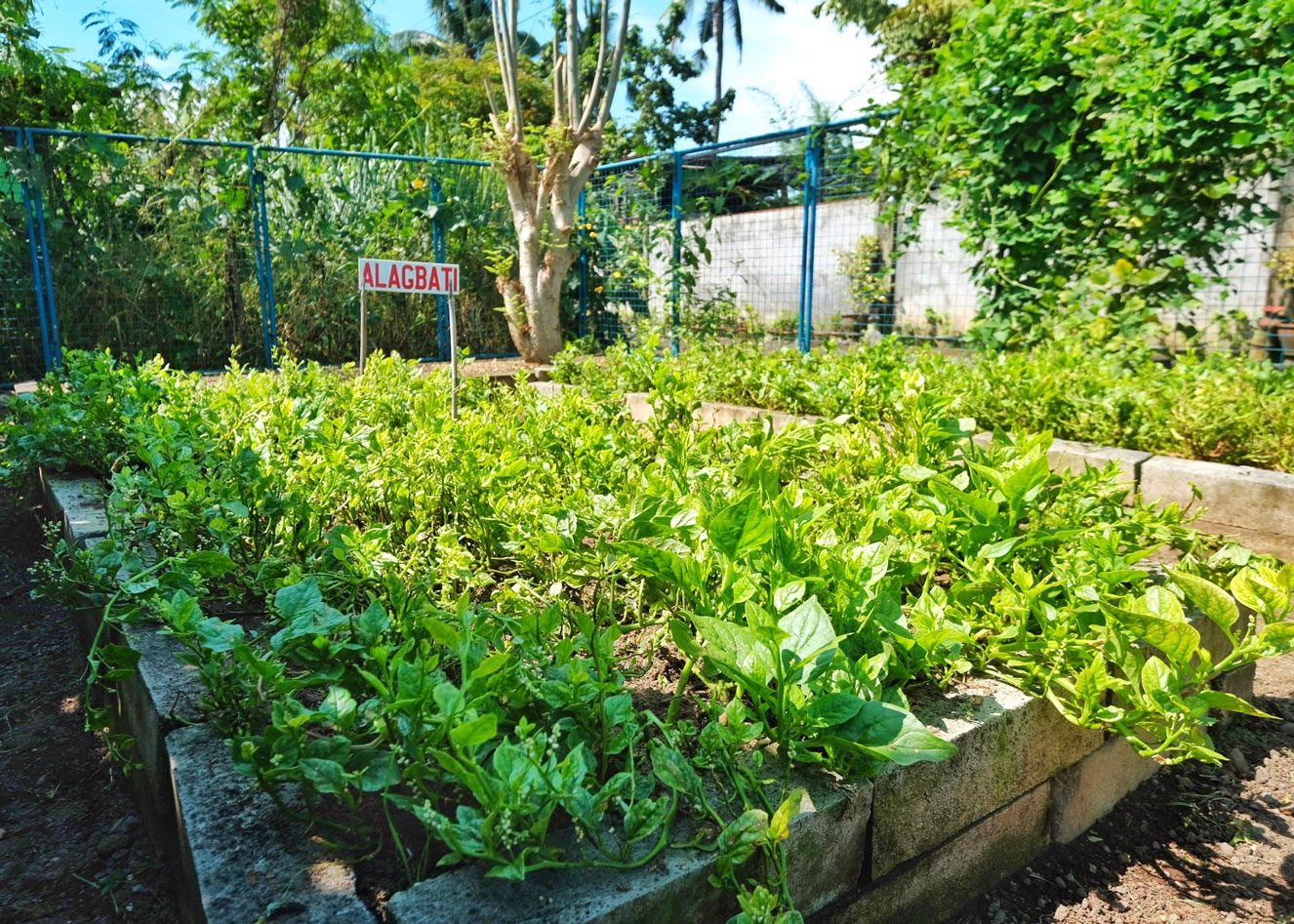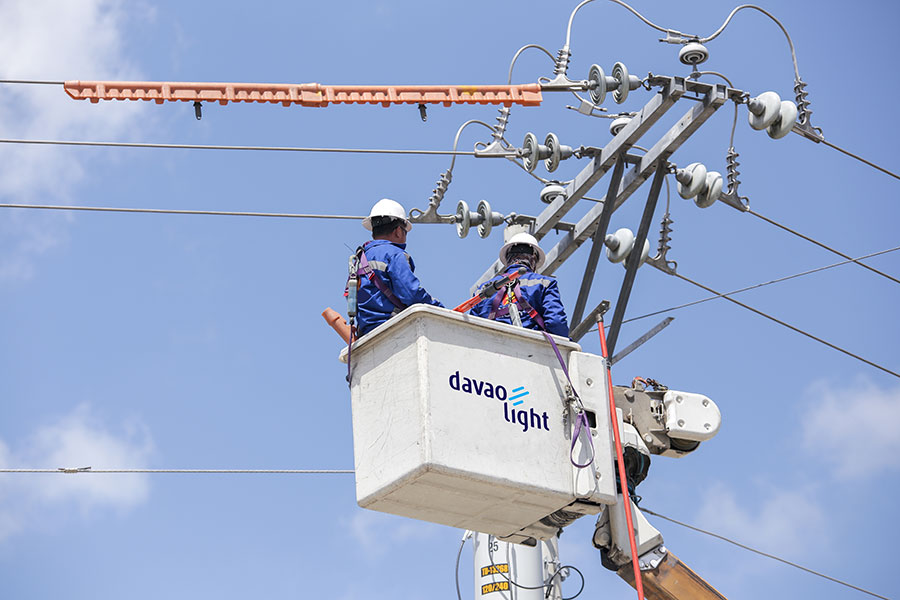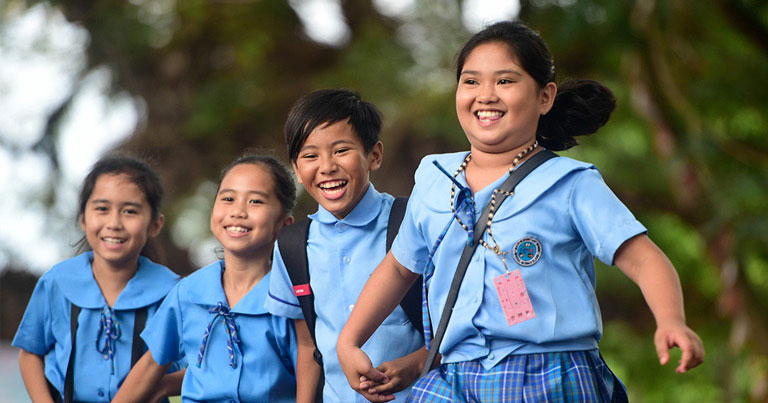For people living in Binugao, Toril, combating poverty is part of daily life, more so during the pandemic. Among the challenges they faced was the struggle for livelihood and their daily sustenance.
Roldan Gonzales' determination to rise against the crisis was not dampened as he transformed idle ground into a productive communal source of food.
Roldan wears multiple hats. Aside from being a barangay official and head of the community’s Bantay Dagat, he initiated and currently leads the Gulayan sa Barangay initiative of tending the community garden.
“Amoa gyud gina encourage among community nga mag backyard gardening kay daghan advantage sama sa ma-ensure namo among sud-an sa pamilya, nutritious food, fresh ang gulay na ginaluto ug dili na muadto ug palengke. Ug ma augment ang income kay dili man mahurot ang gulay for our own consumption, makabaligya pa gyud mi. Ang among halin magamit pa namo og pamalit sabon ug uban pa,” Roldan said.
(We really encourage our community to engage in backyard gardening due to its many advantages such as ensuring that our families have nutritious food, vegetables that we cooked are fresh and we don't have to go to the market to buy vegetables. We can also augment our income by selling some of our produce. From the sale of the vegetables, we can buy soap and other things.)
His small patch is teeming with vegetable plants such as ampalaya, patola, string beans, okra, eggplant, and many more. He started developing the garden on a piece of land provided by Aboitiz Power Corporation’s (AboitizPower) Therma South, Inc. (TSI), which is located in Binugao.
Roldan explained that the concept of backyard gardening was developed when the Binugao Barangay Council mounted a “Gulayan sa Barangay” competition amid the pandemic in 2020. The winners received cash prizes and sacks of rice.
This was not just the usual gardening contest in your neighborhood. The intention of the contest was to equip the community with skills on how to start a livelihood and provide nutritious vegetables to their family even in the middle of a pandemic.
To help community members beautify the garden, TSI also provided plant boxes and cement. The scholars of TSI even participated in the “bayanihan” of teachers, students, and members in painting the fence of the garden.
Sometimes, even members of the Bantay Dagat, seaborne patrol that helps protect the oceans and the marine sanctuary in Barangay Bato,help Roldan in nurturing the garden.
Growing with other communities
Because it promises sustainability, the garden was replicated in Sitio Sta. Cruz, Upper Barangay Binugao, which is being tended by a group of women.
Roldan provided them with gardening tools and supplied them with seedlings that he bought using the backyard garden's sales.
Nenita M. Maja, one of the caretakers of the community garden in Sitio Sta. Cruz, explained that backyard gardening is life-changing. She said the patch of land lent by a barangay official to their group has made them more resilient, as it gives them access to food and an alternative source of income.
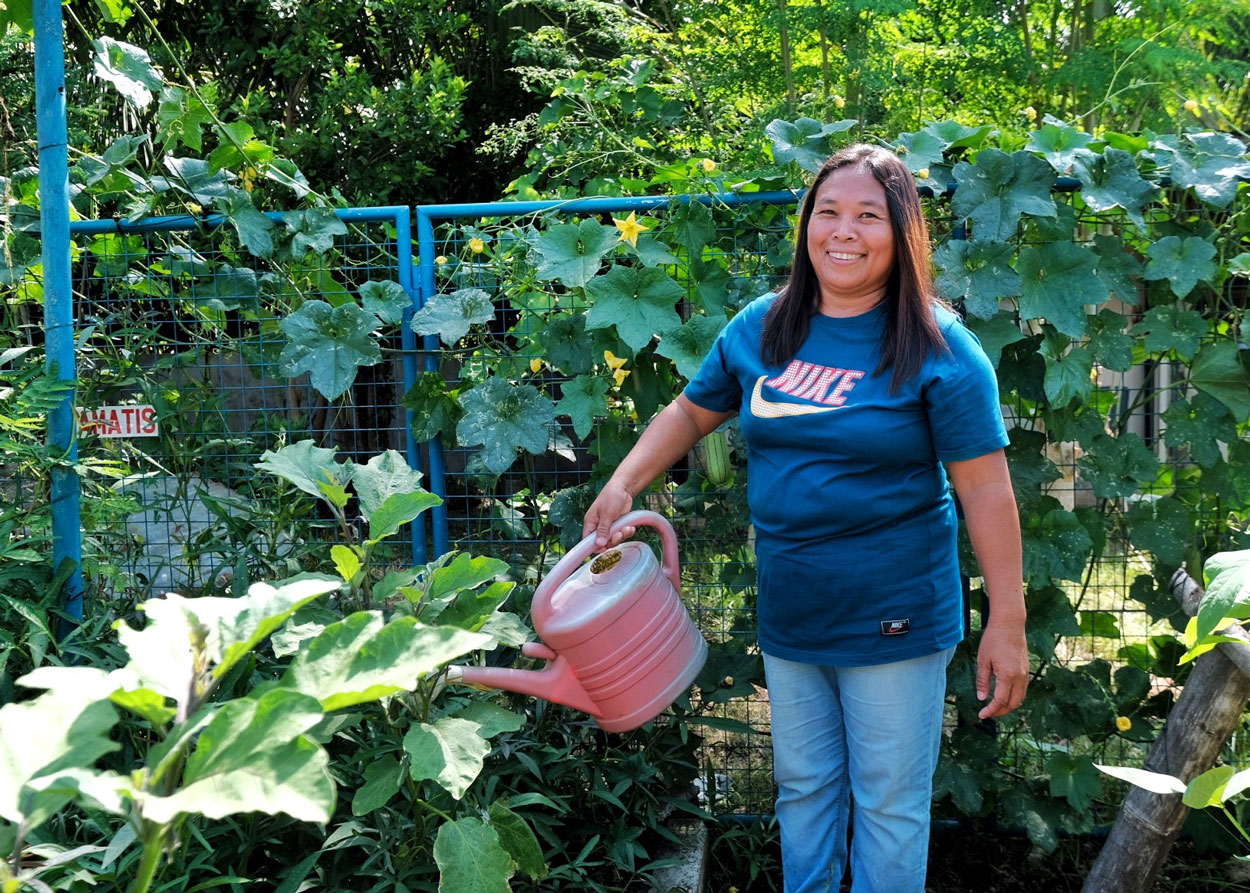
They tended the garden every day — giving it love, time and energy — and felt rewarded when they were finally able to harvest the plants for the first time for their personal consumption.
Realizing that the garden is producing more than what they need for their own use, the group decided to sell some of their vegetables and bought eggplant, alugbati, pechay, mongo, squash, and kamote seedlings using the money they earned. According to Nenita, they chose these vegetables because they are easy to plant and bear fruits in a short period of time.
Seeing the financial benefit of the garden, they planted more varieties of vegetables, with the next harvests seeing an abundance of produce. They then sold it to the market and some of their neighbors.
This time, they generated more profit and decided to buy more gardening tools, seedlings, and other materials needed for their garden.
“Dako gyud ni ug tabang ang backyard gardening kanamo kay naka kuwarta nami ug dili pa mi mamalit og gulay sa palengke,” Nenita said.
(Backyard gardening is really a big help to us because aside from generating extra income, we don’t need to buy vegetables for our families’ consumption.)
Currently, the community backyard garden project serves as an avenue for learning how to successfully grow vegetables and crops, as well as how to sustainably market these products.
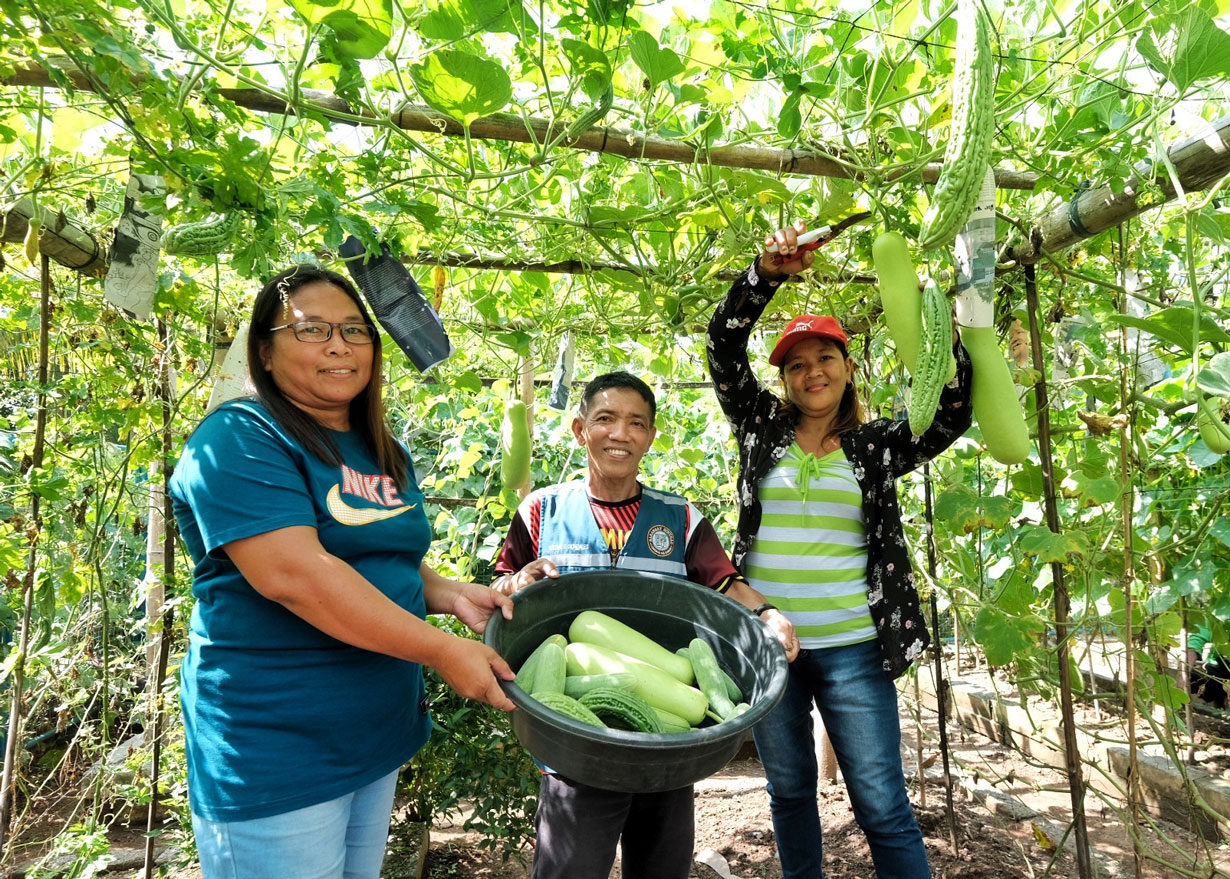
TSI Reputation and Stakeholder Management Operation Specialist Lalaine Balatero said that it is important to instill in the community the advantages of backyard gardening and how to make a thriving vegetable garden.
She said TSI donated some materials for Roldan's community garden to support and encourage residents to embrace urban gardening and develop a more sustainable way of living.
“During the pandemic, maski na highly urbanized siya, medyo layo pa gyud siya sa palengke and during that time para pud malingaw, labaw na sa kababaihan na instead na mag “marites”, para naa silay kalingawan,” she said.
(During the pandemic, even though Binugao is highly urbanized, it is still a bit far from the market. Instead of devoting their time to rumor mongering, especially the women, gardening made them productive while still having fun.)
She said TSI also lauded the dedication of the community to the project and proof of this is the development of the second garden in Sitio Sta. Cruz.
Nurturing what has been planted
To strengthen the implementation of the project, TSI and the Aboitiz Foundation are looking at the establishment of the Binugao Agri Association.
The company is also eyeing to establish a mobile cart, or mobile gulayan, and donate it to the association to help them sell excess harvests.
“We will provide katong mobile gulayan para malako nila, dili lang sa neighboring city and purok puwede pud sila mag adto sa TSI or canteen to sell their produce,” Balatero said.
(We will provide a mobile vegetable garden for them to sell their produce, not only in the neighboring city and sitio, but also to the canteen of TSI.)
The Binugao mobile gulayan aims to support agriculture in the community and encourage them to grow their own food in the comfort of their homes.
The project is expected to help the community become self-reliant and self-sufficient in addressing the nutritional deficiency among their children.
Not only that the project serves as a life support system, it also serves as an eye-opener among the community on the significant impact of agriculture, ensures food security in their area, nutritional value, and economic benefits.
What started with a few seeds planted into the earth has now become a garden of purpose.
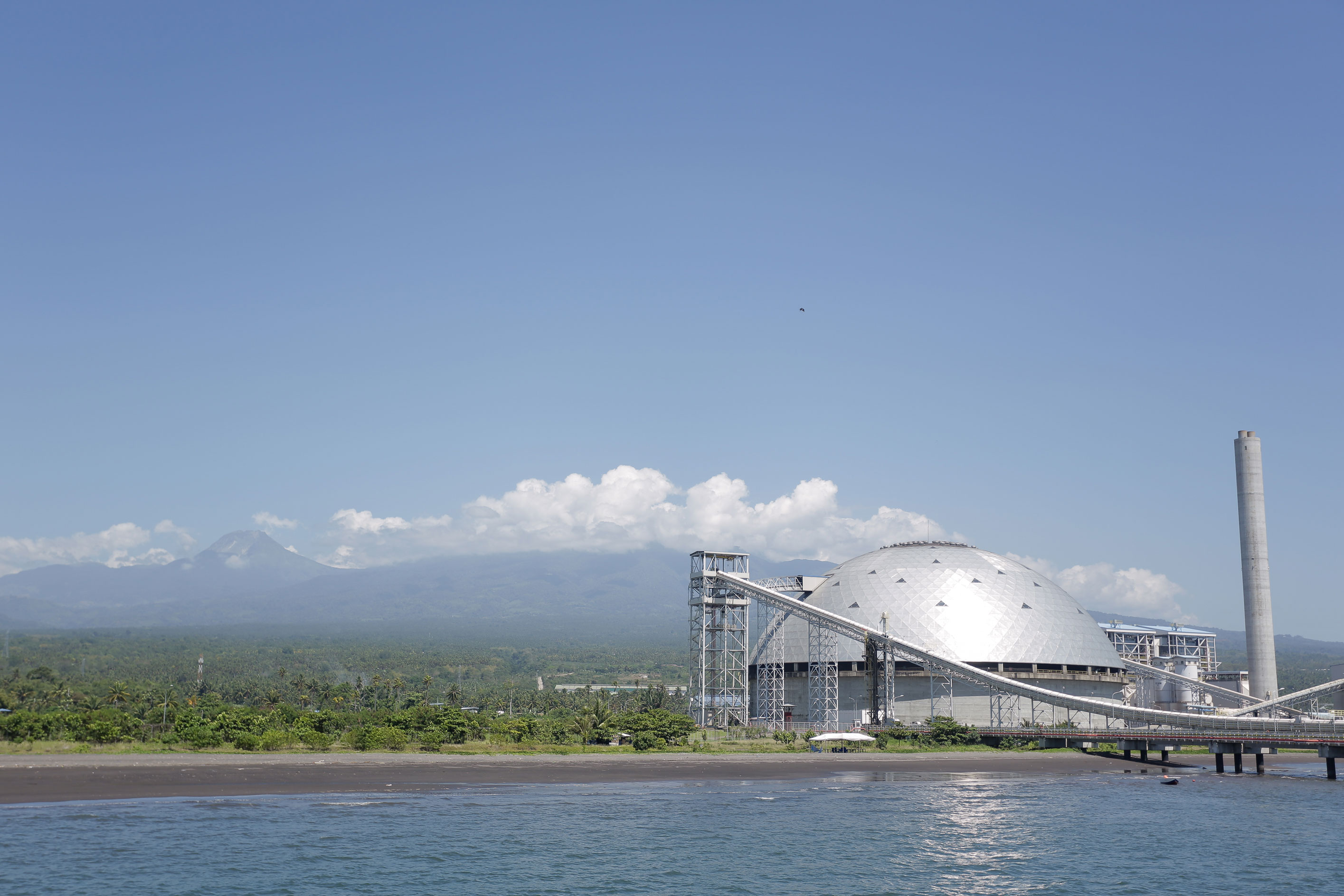
This article by Maya Padillo first appeared on Edge Davao.
